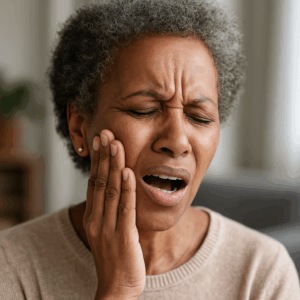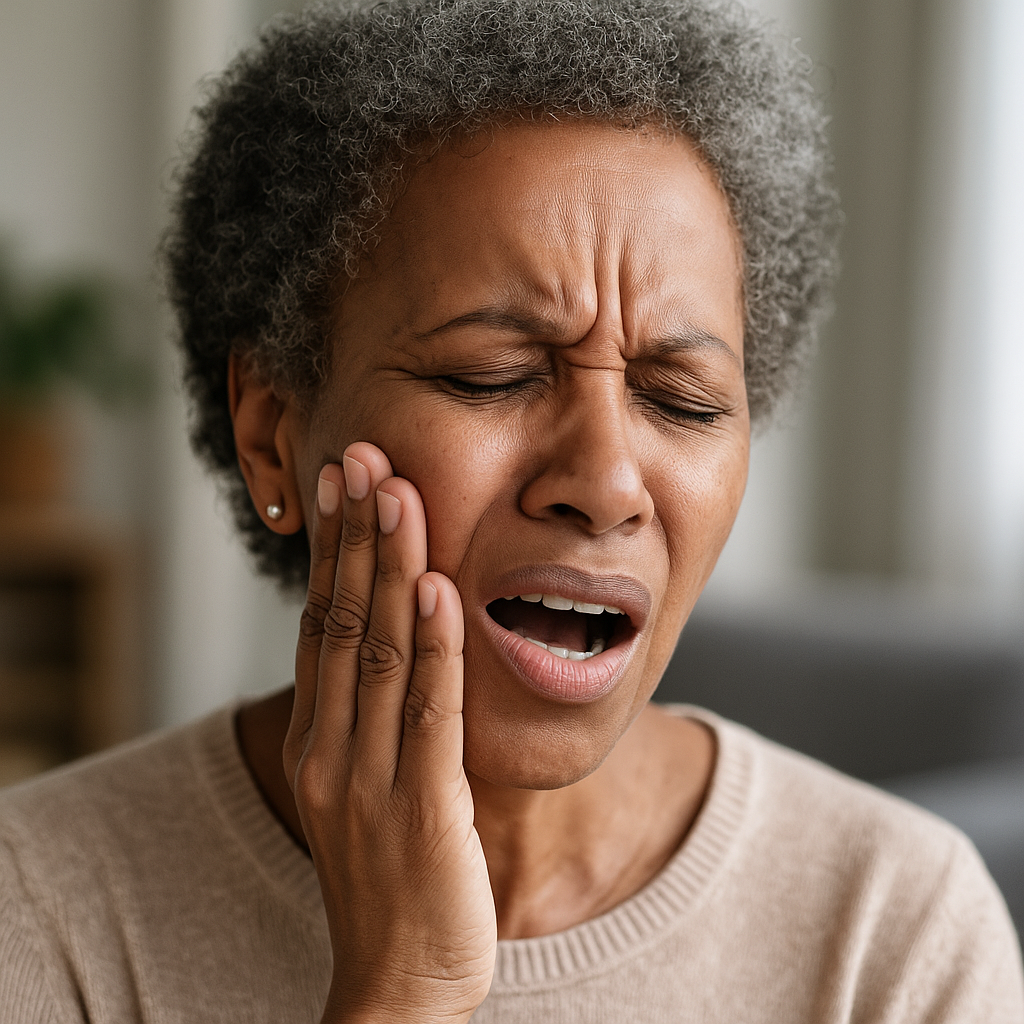How to Cure Gum Disease Without a Dentist
If you’ve noticed bleeding gums, bad breath, or swollen tissue around your teeth, you might be wondering: Can gum disease be cured without seeing a dentist? It’s a common question — and one that deserves a realistic answer.
While there are things you can do at home to slow or manage the symptoms, gum disease is an infection that can only be fully reversed with professional treatment. As your trusted Frisco dentist, Tribute Family Dentistry wants to help you understand what you can do at home, and when it’s time to get expert care before it’s too late.

What Is Gum Disease?
Gum disease — also called periodontal disease — starts when bacteria build up along the gumline, forming sticky plaque. Over time, this leads to inflammation, bleeding, and eventually bone loss around your teeth.
There are two main stages:
-
Gingivitis: the early, reversible stage. Gums may bleed but teeth are still firmly anchored.
-
Periodontitis: the advanced stage, where infection damages bone and tissue. This stage cannot be reversed naturally.
According to the American Dental Association, nearly half of adults over 30 have some form of gum disease — and most don’t even know it.
Can You Treat Gum Disease Naturally at Home?
You can absolutely manage gum inflammation and slow its progress with good oral care habits. Here are some practical steps that help:
1. Brush Correctly Twice Daily
Use a soft-bristled toothbrush and fluoride toothpaste. Angle the brush toward your gumline to remove plaque effectively. Electric toothbrushes are shown to clean more thoroughly than manual ones.
2. Floss Every Day
Flossing removes food and bacteria between teeth where brushes can’t reach. It’s one of the simplest, most effective tools to prevent gum disease from progressing.
3. Use an Antibacterial Mouthwash
Look for one that targets gingivitis or contains chlorhexidine or cetylpyridinium chloride. These help kill bacteria that cause infection.
4. Try Warm Saltwater Rinses
Rinse twice daily with a cup of warm water and half a teaspoon of salt. It helps reduce swelling and promotes healing of irritated gums.
5. Eat for Gum Health
Avoid sugary snacks and sodas. Instead, eat leafy greens, citrus fruits, and foods rich in vitamin C and antioxidants that boost gum tissue repair.
6. Stop Smoking
Smoking is a leading cause of gum disease and tooth loss. If you smoke, quitting is the single best thing you can do for your oral and overall health.
7. Stay Consistent
Home care can make a huge difference, but it only works with consistency. Even missing one night of flossing allows bacteria to multiply quickly.
What Home Remedies Actually Work for Gum Disease?
Some natural remedies have shown mild benefits for reducing inflammation — though none can replace professional periodontal treatment. These include:
-
Oil pulling: swishing coconut oil for 10–15 minutes may reduce harmful bacteria.
-
Aloe vera gel: applying pure aloe vera around the gums can calm irritation.
-
Green tea: antioxidants in green tea may lower inflammation and support gum health.
-
Turmeric paste: turmeric has anti-inflammatory properties that can help reduce gum swelling.
While these remedies can provide temporary relief, they don’t remove hardened tartar under the gumline — the root cause of gum disease.
When You Still Need to See a Dentist
If you have persistent bleeding, bad breath, gum recession, or loose teeth, it’s time to visit a dentist for professional care.
At Tribute Family Dentistry in Frisco, TX, we specialize in periodontal gum treatments designed to stop infection, deep-clean the roots of your teeth, and help your gums reattach.
Regular dental cleanings every six months are crucial, but if you already have gum disease, you may need scaling and root planing — a deep cleaning that removes bacteria below the gumline.
Ignoring gum disease can lead to tooth loss, jawbone damage, and even systemic issues like heart disease and diabetes, according to Mayo Clinic.

How to Prevent Gum Disease from Returning
Once your gums are healthy again, prevention becomes your best medicine. Here’s what works long-term:
-
Brush and floss daily.
-
Schedule dental visits twice per year.
-
Replace your toothbrush every three months.
-
Eat a balanced diet and stay hydrated.
-
Manage stress — it affects your immune system’s ability to fight infection.
The Bottom Line
You can ease early symptoms of gum disease at home, but only a professional dentist can remove hardened tartar and stop bone loss. Think of home care as maintenance, not a cure.
If you’re in pain, noticing bleeding gums, or just want to prevent future problems, contact Tribute Family Dentistry — your trusted Frisco dentist. Our friendly team provides gentle, affordable care for all ages and helps restore healthy gums and confident smiles.
Schedule an appointment today to take the first step toward better gum health.
Frequently Asked Questions
Can gum disease go away on its own?
No. Gingivitis, the earliest stage of gum disease, may improve with proper brushing and flossing. However, once the disease progresses into periodontitis, it will not go away without professional treatment.
What’s the best home remedy for gum disease?
Warm saltwater rinses, good oral hygiene, and quitting smoking are the most effective at-home steps. Natural remedies like oil pulling or aloe vera may help reduce symptoms but don’t cure the infection.
Is gum disease contagious?
Yes, bacteria that cause gum disease can be passed through saliva. Avoid sharing toothbrushes, utensils, or cups with someone who has gum disease.
Can gum disease be reversed without deep cleaning?
Only early gingivitis can be reversed with daily home care. Once tartar forms below the gumline, deep cleaning (scaling and root planing) by a dentist is required to restore gum health.
When should I visit a Frisco dentist for gum disease?
If you notice bleeding, swelling, gum recession, or bad breath lasting more than a week, it’s time to see your Frisco dentist. The earlier you get treated, the easier and less costly it is to fix.



